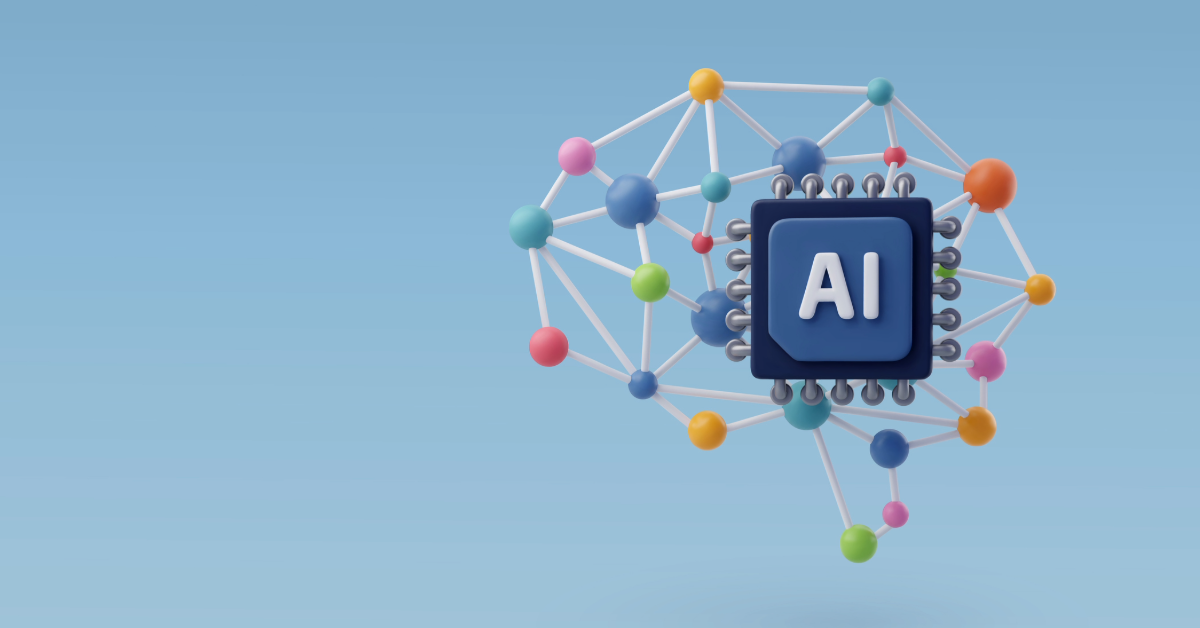When it comes to choosing between organic and paid marketing, it is not really a case of “one or the other”, both are effective in their own way. While these marketing strategies serve different purposes, when used together they can help you reach your business goals faster and achieve greater results.
- What is organic marketing?
- Types of organic marketing
- Advantages and disadvantages of organic marketing
- What is paid marketing?
- Types of paid marketing
- Advantages and disadvantages of paid marketing
- What is the difference between organic and paid marketing?
- Which is better for small businesses?
What is organic marketing?
Organic marketing, also referred to as ‘inbound marketing’, is a long-term marketing strategy which focuses on gaining free traffic (rather than paid marketing, which we’ll discuss later). The emphasis on this strategy is that it is free of charge. Therefore, all marketing techniques that do not require a fee are known as organic marketing.
The goal of most marketing techniques is to drive traffic, however, with organic marketing the aim is to naturally generate traffic over time without adopting paid methods.
Types of organic marketing
Basically, organic marketing is any type of marketing technique that you don’t pay for. Examples of organic marketing tactics include optimising your web content to rank higher in online searches (SEO), social media marketing, and email marketing to increase brand awareness.
There are so many factors to SEO that it can be complex to understand, but showing up in local search results has become an essential factor for businesses looking to boost their website traffic.
Meta-tags, alt-text and keywords are all elements that affect optimisation, but they only scratch the surface of what we can achieve for your business. Our consultants know SEO inside and out, ensuring you keep up with the latest trends and how your customers use search. If you want to prioritise SEO as part of your organic marketing strategy you can book a free consultation with our team.
Here are some SEO resources you might find helpful:
➔ Website grader
Give your website a free health check with LOCALiQ website grader. Our website grader takes an in-depth look at your website, social media accounts, local business listings and more to give you an overall digital score. With the report, you’ll See how your online presence compares to your competitors and discover actionable areas for improvement so you can easily make changes and achieve great results.
➔ Get Started with SEO on-demand webinar
In this on-demand webinar, you’ll gain a foundational knowledge of SEO and be able to help your business implement this digital advertising strategy as a part of your multi-channel marketing plan. Walk away with a foundational knowledge of SEO that will benefit your business.
➔ A Guide to Local SEO
Discover how to get your business in prime position on search engines, and rank effectively for local search queries relating to your business and services. In this guide you will gain further insight into; SEO ranking factors, how users conduct location-based searches, keyword research, Google My Business optimisations, and more!
-
Social media marketing:
Social media is free for anyone to use, and is therefore considered an organic marketing technique (providing you aren’t paying for ads).
Whether you’re ready to take the next steps with your organic social media marketing strategy, or you’re just looking or some more information, we’ve got social media experts on hand to help you get started.
Here are some social media resources you might find helpful:
➔ The top 18 social media metrics you should be tracking
Identify the most essential social media metrics, why they’re important and how to track them so you can make better decisions for your business.
➔ How to Increase Organic Website Traffic
Looking for ways to drive traffic to your website for free? Here are 17 simple ways to increase your organic traffic, from special media marketing to SEO.
-
Content marketing:
The purpose of sharing organic content is to help solve your customers’ problems, and build their trust and loyalty in your business for short and long-term conversions.
Many brands have their own blogs, where they can share industry specific knowledge, to encourage relevant traffic to their website. But content isn’t just about words, it’s about their meaning and presentation.
Our content creators work with your business to create unique visuals and on-brand messages which resonate with your target audience, encouraging them to discover your brand, products, and services.
Here are some content marketing resources you might find helpful:
➔ How to communicate effectively with customers online
Natural communications with your customers will keep them engaged with your brand.
In this guide we explain how to share helpful, engaging content via email, blogs and social media.
➔ How to utilise your online content
Whether updating your website or creating blog posts, content is invaluable for your SEO.
Explore the various content platforms & how to boost your organic traffic with LOCALiQ.
➔ How to write SEO-friendly posts
Learn how to write engaging, fully optimised blog posts for the search engines like a pro.
We uncover how to find valuable keywords, write blog posts for every stage of the marketing funnel, & how to direct high-quality traffic to your posts.
Advantages and disadvantages of organic marketing
Additionally, organic marketing impacts your paid marketing efforts because if someone organically comes across your website, you can retarget them later with paid ads (on social media, search engines, etc.). Ultimately, the goal of organic marketing is to drive traffic to your site.
All marketing techniques have their individual pros and cons. Here are some of the advantages organic marketing has to offer:
- Drives traffic to your website via free platforms.
- Helps to establish your brand’s voice and personality.
- Increases credibility and online visibility.
- Engages customers and helps build customer relationships.
- Long lasting strategy compared to paid advertising.
Here are some of the disadvantages of an organic approach:
- It is time-consuming and it takes a long time to achieve results.
- There is limited reach as organic marketing is usually only shown to the people who already follow you.
What is Paid Marketing?
Paid marketing refers to any strategy in which a company purchases advertising to target customers based on their interests, intent or previous interactions. With this type of marketing you are actively seeking your audience rather than waiting for them to find you organically.
Types of Paid Marketing
As the name suggests, this type of marketing is not free of charge. Most paid advertising is either displayed on search engine results pages (SERPs) or across social media networks.
These kinds of platforms are great for paid marketing because they allow you to define a target audience based on a wide range of criteria such as location, demographics, previous interactions with your business etc.
Both paid search and social marketing work on a pay-per-click model, where you only pay once someone has clicked on your ad. Typically, you set a maximum budget, such as £250, and then the ad runs until it reaches that set amount.
A paid social media strategy is a super tool for reaching untapped audiences online via highly-targeted social ad campaigns. At LOCALiQ we cover the social media platforms including; Facebook, Twitter, Instagram, TikTok & LinkedIn.
Here are some free paid social resources you might find helpful:
➔ How to market your business with social media
Use the power of social media to boost your brand awareness, customer relations & online presence. Download our free comprehensive guide and gain insights into social media marketing – the benefits, how to promote your business and more.
➔ How to create a social media marketing strategy
Create and plan social media ads for your business with our helpful 9-step resource.
Read our free in-depth guide where we’ll guide you through the steps we think are most important when it comes to creating, planning and implementing your social media marketing strategy.
➔ How to plan and create a social media campaign
Creating a successful social media campaign can produce incredible results for your business.
Discover how to effectively plan your campaigns, set your goals and the benefits of paid social ads.
If your focus is on local search campaigns, our PPC marketing agency is here to help. LOCALiQ’s digital marketing specialists will put your business on the map with super-effective paid search campaigns. Contact us today and start achieving your objectives.
Here are some PPC resources you might find helpful:
➔ How to create a PPC strategy
Learn how to build PPC campaigns & align your paid strategy and offline goals with LOCALiQ’s free on-demand webinar.
➔ How to run a paid search campaign
Increase your websites visibility & promote your business with cost-effective paid search ads.
Read our in-depth guide to paid search – the benefits, how it works, the different ad types and more.
➔ PPC campaign checklist
A super-handy checklist for creating and monitoring your paid search campaigns.
Tick all the right boxes for your PPC strategy – download for free today and ensure your paid ads are always up to date.
Advantages and disadvantages of paid marketing
Paid marketing is one of the quickest ways to help potential customers discover your brand and offerings. Here are some more of the many benefits associated with paid advertising:
- Allows you to target specific audiences.
- Increase your brand awareness & traffic to your website.
- Delivers fast and measurable results – unlike organic marketing
- Boost engagement of your pages & posts.
- Increased conversions on your social platforms & website
- Produces an impressive return on investment (ROI).
- Generates qualified leads and interested prospects.
- Budget-friendly.
- Provides the opportunity to boost organic content.
As with organic, paid has several disadvantages that you should be aware of when creating your marketing strategy. Some of the cons of using paid include:
- Paid marketing is highly competitive.
- It is not free of charge and can be quite costly (especially if you are in a competitive market).
- There are limits on ad space due to competition which increases costs per click.
- Does not guarantee ROI.
- It is time consuming. Paid ads should be constantly monitored and adjusted to be effective.
- Short-term strategy with no longevity.
What is the difference between organic and paid marketing?
The main difference between these two marketing strategies is organic is free of charge and paid marketing comes at a cost.
One of the biggest advantages of using paid ads is that they can quickly deliver results, unlike building traffic through organic methods. Adopting an organic marketing approach by creating content and relying on SEO, can take months to bring results, whereas you can start seeing traffic from your paid ads almost immediately.
Which is better for small businesses?
To get the most out of your marketing efforts, you ideally want to be advertising on both search engines and social media. Combining different marketing techniques allows you to reach more consumers and gain their attention at every stage of the buyer’s journey.
A paid marketing approach compliments your organic efforts by boosting their efficiency and driving faster and tangible results. However, there are times when it may not be feasible for you to invest resources into both organic and paid marketing simultaneously, so you must choose which is the most effective way to reach your ideal clients based on your business objectives.
If your objective is to boost brand awareness quickly or generate leads, paid advertising is your best bet. On the other hand, if your goal is long-term sustainable growth or to engage and build relationships with your audience, organic marketing is a better choice. But be aware that there is only so much you can do with such an organic approach before you have to turn to support from paid.
You should consider using organic marketing if these are your business goals:
- You want to establish your brand’s voice and personality.
- You want to engage with and build customer relationships with your followers.
- You want to increase credibility and online visibility.
You should consider using paid marketing if these are your business goals:
- You want to increase brand awareness and capture new subsets of customers.
- You want to create engaging ads that will resonate with your target audience.
- You want to target a specific group of consumers on social media.
We hope you’ve found this blog helpful.
At LOCALiQ we help a variety of clients across a wide range of industries with their online marketing.
If you’d like additional help with your digital marketing strategies, contact us today for a free consultation and find out how we can make your goals a reality.






